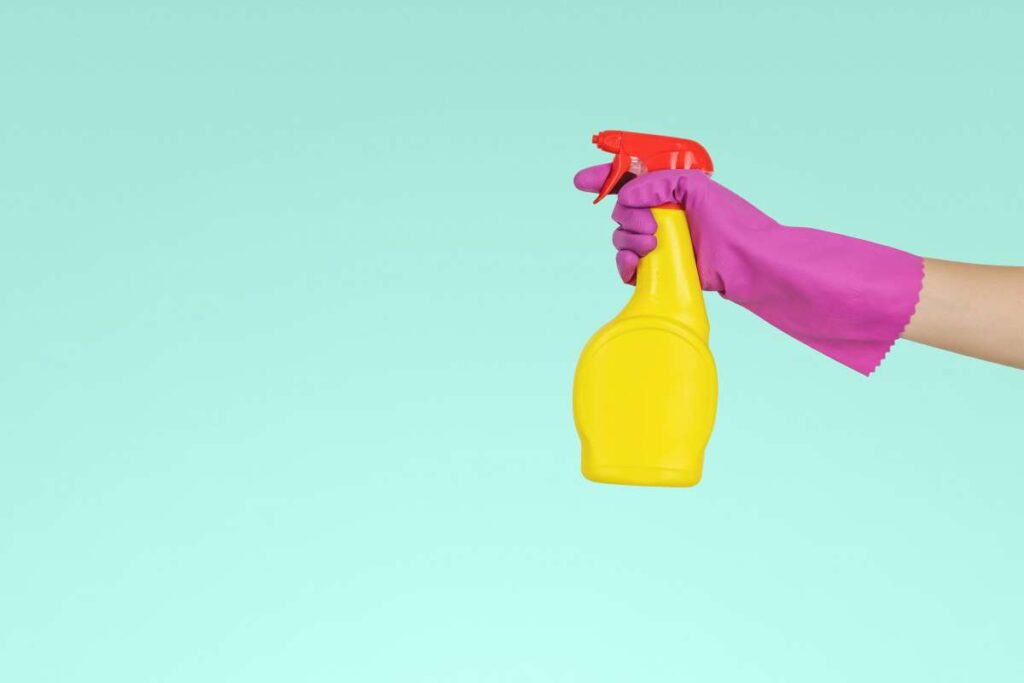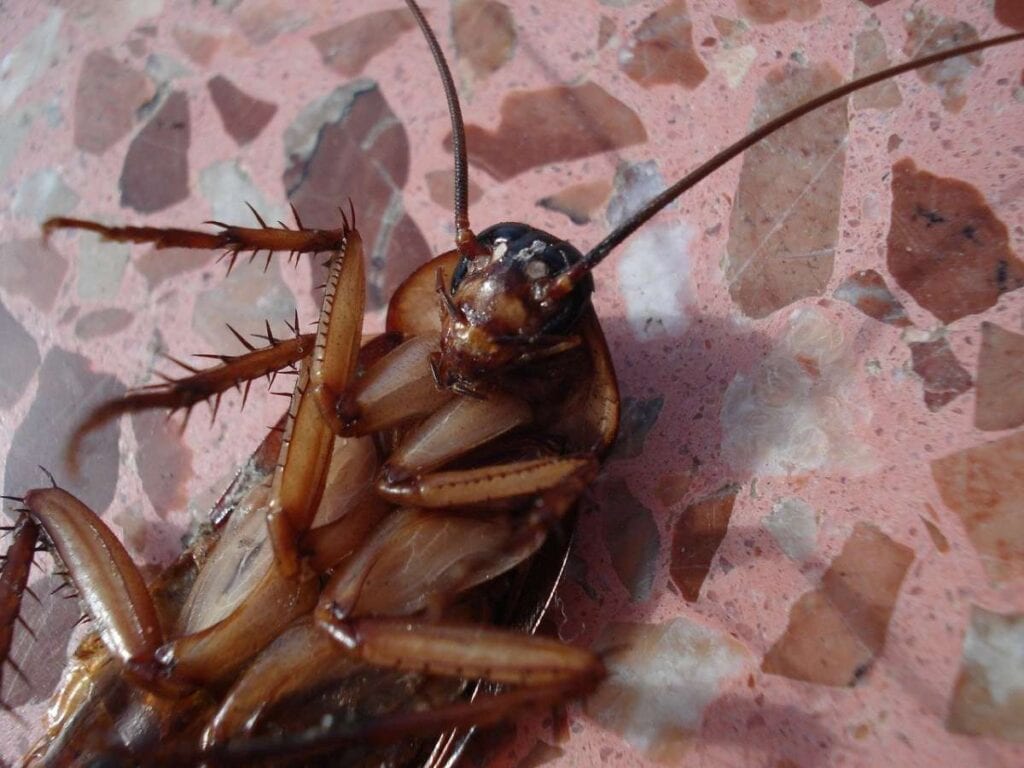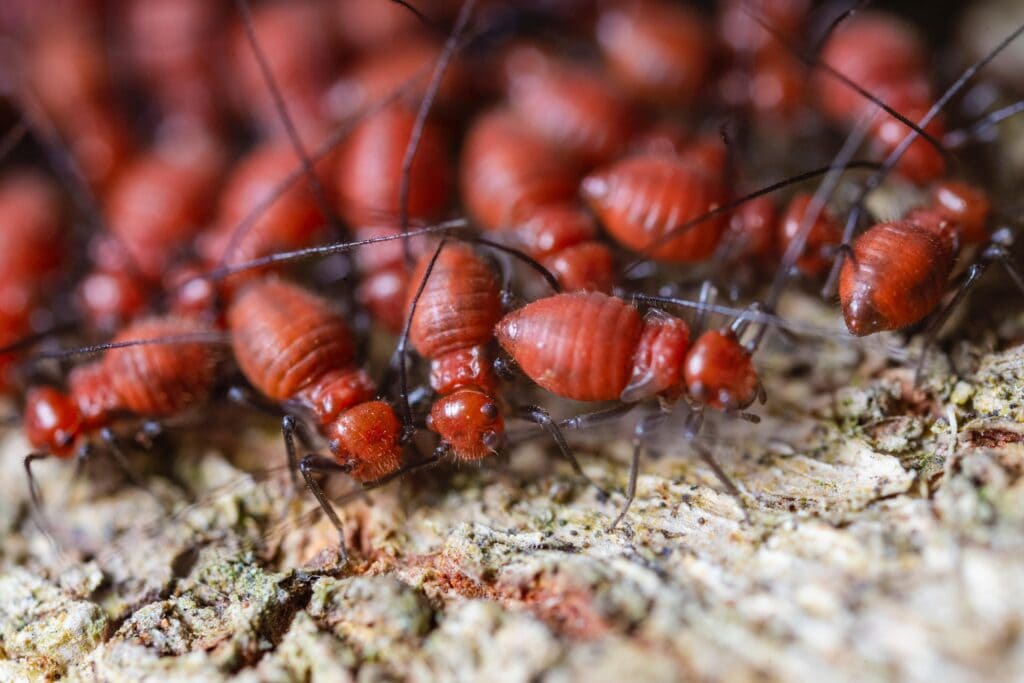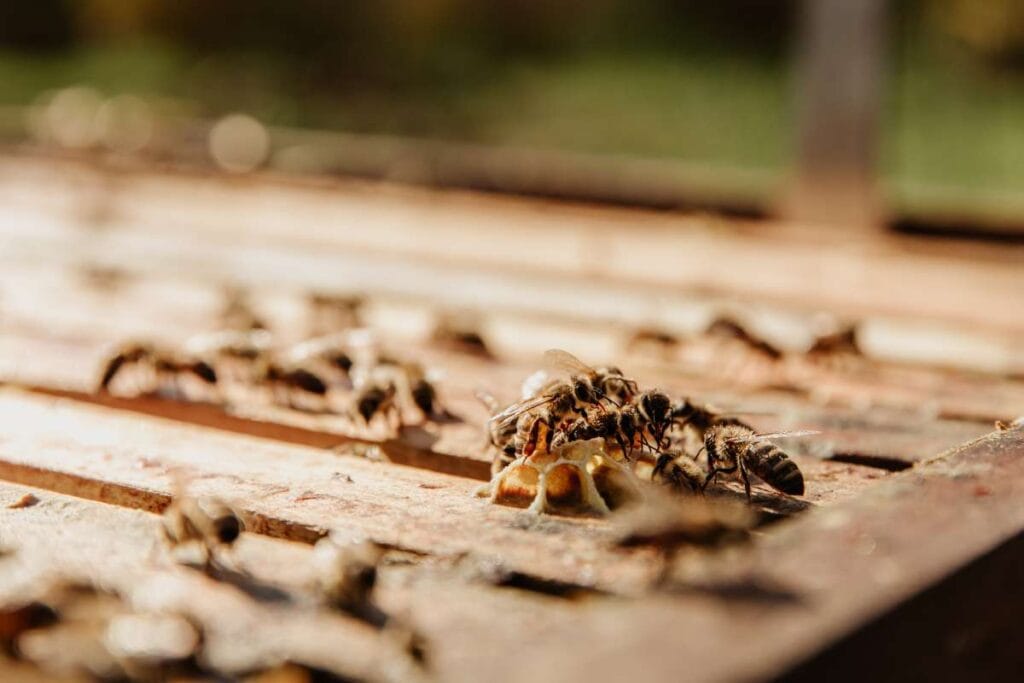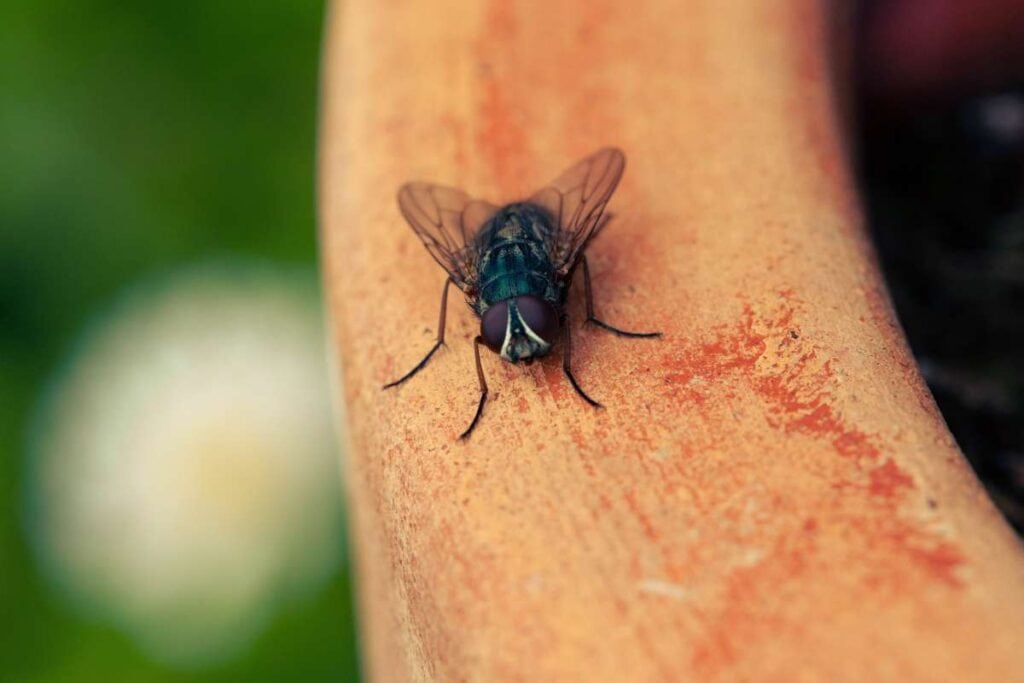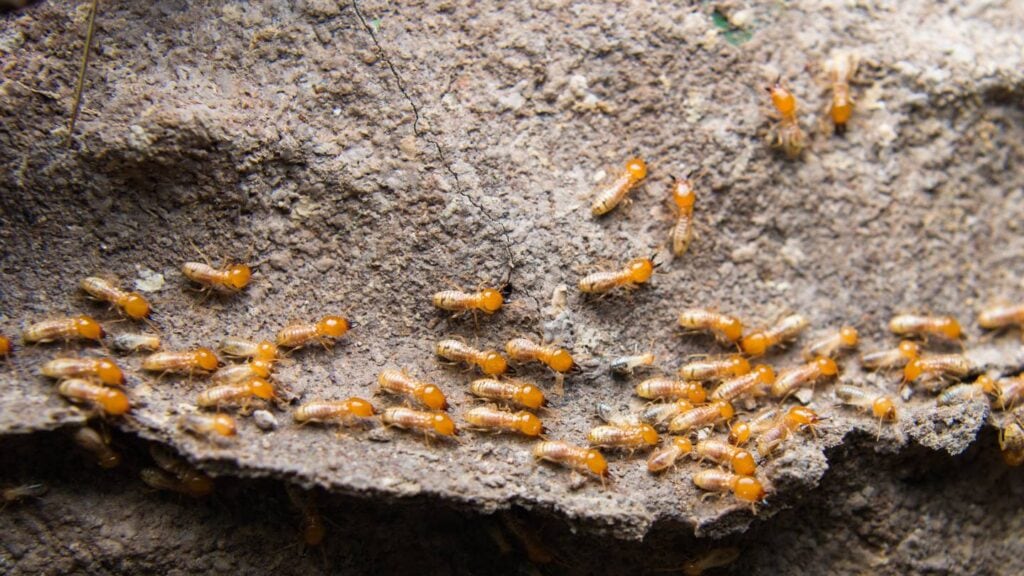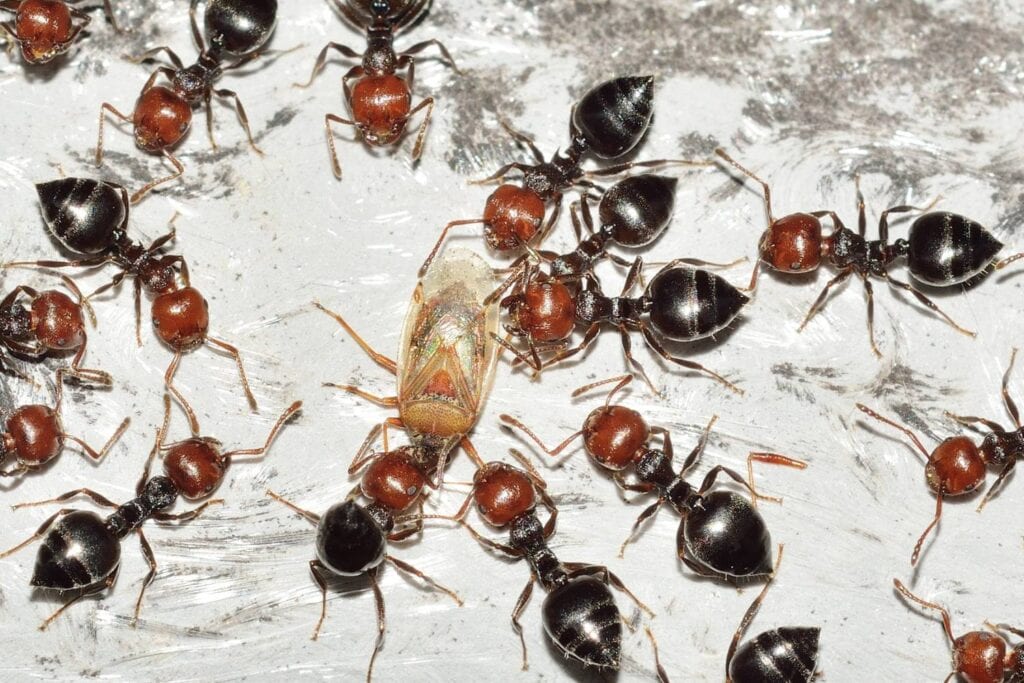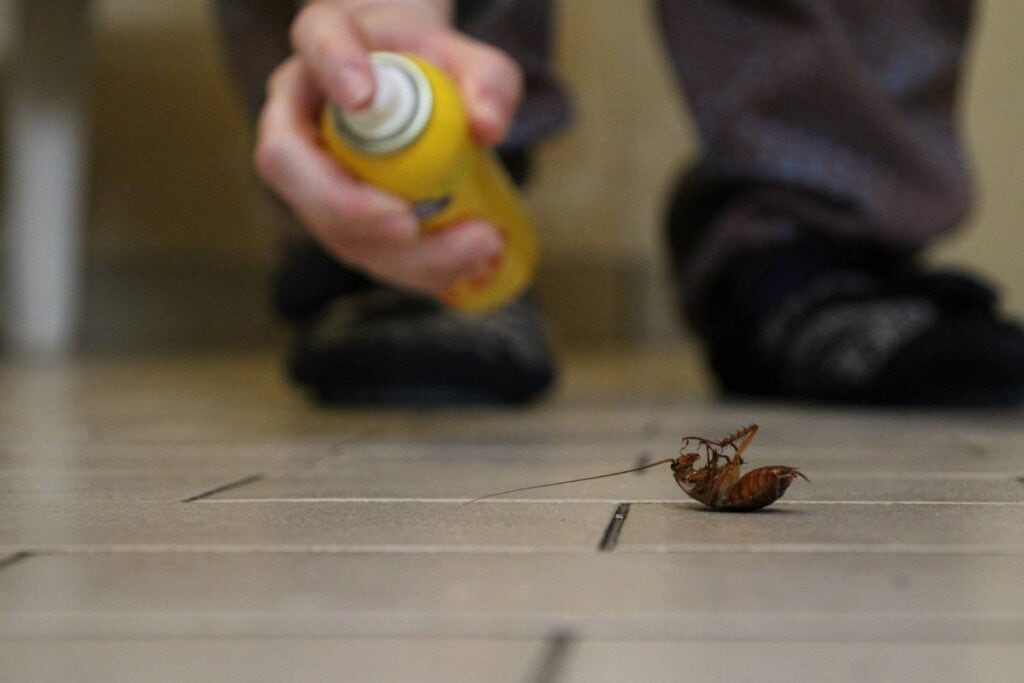Have you ever had unwanted guests in your homes, such as bugs, rats, or other critters?
Instead of waiting to take offensive measures until after a pest has already invaded your home and caused damage, you can take proactive measures to avoid pest problems before they even arise.
There are many different options available that can be done both inside and outside of your home to prevent conditions that are attractive to pests.
This should reduce the likelihood that the bugs will ever cause you any trouble. Pests are a frequent source of frustration for homeowners.
They can enter your home in a variety of ways, such as by squeezing through tiny gaps and crevices or by riding in on your luggage or other personal possessions.
Once they are inside, it can be tough to kick them out. There's no denying that pest control issues may be a major pain in the neck.
They pose a danger to one's health in addition to the damage they can cause. Homeowners can do a lot to keep insects out of their houses before they ever get there.
Although a professional exterminator may be necessary for severe infestations, many insect problems can be solved by the average household.
In this article, we'll talk about some of the best ways to prevent pest infestations.
We'll also provide information on how to deal with an infestation if it does occur. So read on to learn more about preventing household pests!
FAQs About Pest Control
- After each meal, clear the table.
- Put every last piece of trash in the can.
- Before placing any food scraps in the garbage, make sure they are tightly wrapped in paper.
- Make sure that the counters, cabinets, and floors are always spotless and clear of any remnants of food.
- Maintain a regular cleaning routine underneath the range, refrigerator, and any other home equipment.
Chemical Regulations. The use of pesticides, which are chemical substances that either kill bugs or prevent their development, is by far the most popular approach to controlling pests. It is common practice to categorise pesticides in accordance with the type of pest they are designed to eradicate.
Controlling rats and insects is essential for a number of reasons, including the fact that these pests spread disease, infest your kitchens and bedrooms, and attack either you or your pets. It is for your own protection and good health that you should get rid of any form of pest that has made its home in your house, garage, or yard. For instance, rodents that find food in your kitchen may defecate on or near that food after eating it.
Pest Control is important as pests can be both a nuisance and a danger to health. They can attack and contaminate food intended for humans, damage the structure of your premises (such as electric cables) and spread many forms of disease and harmful bacteria that can cause food poisoning.
Pest control in agricultural crops is generally achieved by chemical pesticides which are effective and have a 'knock-down' effect on the life stages of insects and mites. Recently, plant products have been experimented on in indoor cultivation and in fields.
How to Take Control of the Pest Situation at Home
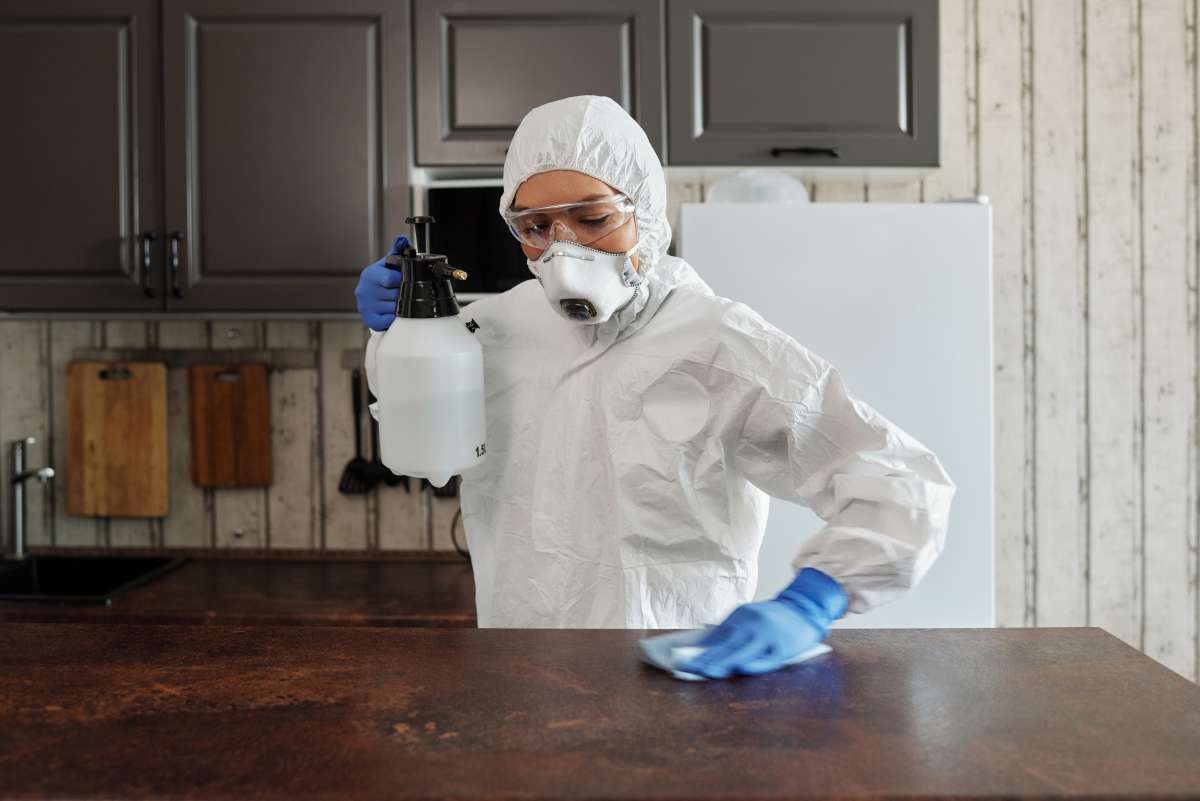
Pests and rodents are more than just an annoyance; they may have a significant negative impact on your health as well as the health of your family.
Because of this, protecting homes, companies, schools, and any other area where human beings live, work, or play from an infestation of pests requires taking measures to eliminate the threat posed by bugs and insects.
Make Sure the Kitchen Stays Tidy
Pests have a greater chance of thriving in environments that are unclean and damp. In order to prevent having an invasion of pests in your kitchen, it is important to keep the countertops, shelves, cooktop, and cabinets clean.
Use a disinfecting cleaner on them on a regular basis and wipe them down. In addition to this, if there are food scraps sitting around in the open, more insects will be attracted to them.
This advice for preventing pest infestations might not get rid of all of the insects and rodents in your home completely, but it will almost certainly cut down on their numbers.
Cleaning up after pest control is another extremely important step to do to keep your home free of infestations in the near future.
Reduce the Number of Plants and Mulch
You should prune back any tree branches or vegetation that are getting in the way of your home. By doing so, you can cut off the pests' "bridges" to your home.
In a similar vein, bugs may find the mulch in garden beds to be a great place to hide.
Therefore, rather than utilising mulch in the places that touch your foundation, instal a ground cover that is less appealing to pests, such as pebbles.
Maintain a Tidy State in the Bathroom.
The majority of resources devoted to preventing pests in apartments do not include advice on preventing pests in bathrooms. However, the aforementioned guideline is applicable in restrooms as well.
Maintain a sanitary and dry environment in your bathrooms. You should clean the toilet bowl with a toilet cleaner once every other day.
Use a powerful bathroom cleaner at least once a week to give the sink a thorough cleaning.
Make sure the shower curtain stays dry and moss-free at all times. Take care to prevent the drain from becoming blocked with soap scum and hair by ensuring that it is continually covered.
Because of these simple precautions, the bathroom will remain clean and pest-free for an extended period of time.
Close and Latch All Doors and Windows.
Since insects and rodents are able to squeeze through the tiniest of crevices and openings, you should perform routine checks on your doors and windows and fix any that are warped, cracked, or just do not fit properly.
Also, any rips or tears in the screen should be repaired as soon as possible.
It is recommended to use screen mesh sizes that have at least 200 holes per square inch; they may be found at most home improvement and hardware stores.
Do Not Allow Any Standing Water to Form
Pests like mosquitoes develop in stagnant water.
You should clean the area around your home and ensure that the drains that run outside your home are also cleaned since unclean water that sits still in drains can be a breeding ground for mosquitoes that can spread diseases like dengue fever and malaria.
When they are not being used, ensure that the buckets in your bathroom remain completely dry.
The same may be said for utensils used in the kitchen. If you have an air conditioner that evaporates water, you should not place a container under it in order to collect the water that it produces.
Investigate other possible solutions, such as installing a conduit to take the water away as soon as it reaches the location in question. Or alternatively, empty the dish daily and clean it.
Make it a point to check that your home and the areas surrounding it are completely devoid of any standing water.
Examine the Area for Splits and Holes.
There are many other places than doors and windows that might have little apertures.
Conduct routine checks of the whole outside of your home to look for cracks, crevices, and other openings that pests could use to infiltrate your property.
Check for spaces around powerlines such as plumbing, electrical conduits, and cables, as well as fractures in the ground, weak roofing, and missing roof tiles. Also, look for faults in the foundation. Also, check to see if any panels are missing.
In the event that there are any holes or spaces, you can plug them with coarse steel wool, metal sheet, copper mesh, or cement. Due to the ease with which numerous insect species may chew through expanding caulk, its usage is discouraged.
Keep Perishables in the Fridge as Much as Possible.
When they have reached their peak maturity, fruits and vegetables attract flies and other kinds of insects.
Try not to let fruits that have been sliced or that have already ripened out of the refrigerator for too long.
The overripe and decaying fruits can attract relatively large pests which are tougher to get rid of, such as flies, termites, and roaches.
While certain pests, such as fruit flies, aren't harmful, other pests can be. Fruit flies are one example.
Take the Necessary Steps to Remove Garbage and Litter
The vast majority of people are aware that rubbish in the home has the potential to entice vermin such as ants, roaches, and mice.
However, unwanted pests may be attracted to yard debris because they can use it as either a place to nest or a source of food.
Make sure that the lids of all of your garbage cans are secure and that you clean the cans and the area where they sit on a regular basis to get rid of any debris or spills that could provide a food source for bugs.
In addition to this, check to see that your lawn, terraces, balconies, and car parks are clear of dead leaves, plant clippings, and water that has been left to collect. All of these factors can combine to generate conditions that are just right for unwanted critters to set up residence in.
Wash Recyclables
It is advisable, like with trash, to store recyclables in a container with a cover that can be tightly closed.
On the other hand, several communities offer their citizens open containers for trash and recycling.
If this is your situation, give your recyclables a thorough washing to remove any traces of food before placing them in the trash can.
If you do this and take a little bit of extra time to do it, your bin should remain pest-free. Additionally, rather than keeping it in your home or garage, you should keep the bin outside if at all possible.
Get Rid of Clutter by Discarding Unused Items
One effective method of reducing bug populations is to reduce clutter. Toys that your kids have outgrown and empty boxes sitting around the house should be disposed of.
Items like these just attract pests and harbour bacteria. Get rid of or sell everything you no longer need, such as a baby stroller, shoes, packing, plastic bags, outdated suitcases, etc.
Ask yourself, "Will I utilise this item in the next three months?" if you're having trouble deciding whether to save something or throw it away. If the item can't be used again, it should be discarded.
Regular Cleaning of Your Home Is Essential
Pests will be less likely to invade a spotless home. Keeping on top of your regular cleaning routine, including vacuuming, mopping, and the like, will prevent any pests from settling in.
You'll also be picking up crumbs and other detritus that could have served as a source of nourishment for bugs.
And if you do the rounds of cleaning on a regular basis, you will likely find any entry points for pests before they become an issue.
Contact an Expert Pest Control Service
Although taking the above-mentioned steps can help lessen the insect population in your home, they will not be enough to prevent the need for expert extermination.
Do you need the assistance of a professional pest control service?
If you don't catch termites in the early stages, they can do a lot of damage to your home. All Pests is a reliable pest control service that can assist you in getting rid of these unwanted visitors in a timely and cost-effective manner.
When it comes to termites, we know how crucial it is that your house is protected. That's why we have so many options for you to choose from when it comes to our services. With our 100% satisfaction guarantee, you can rest easy knowing that you're choosing the greatest choice for your home and family.
Get in touch with us and call us at 0409 523 029 to learn more.
Benefits of Pest Control Services
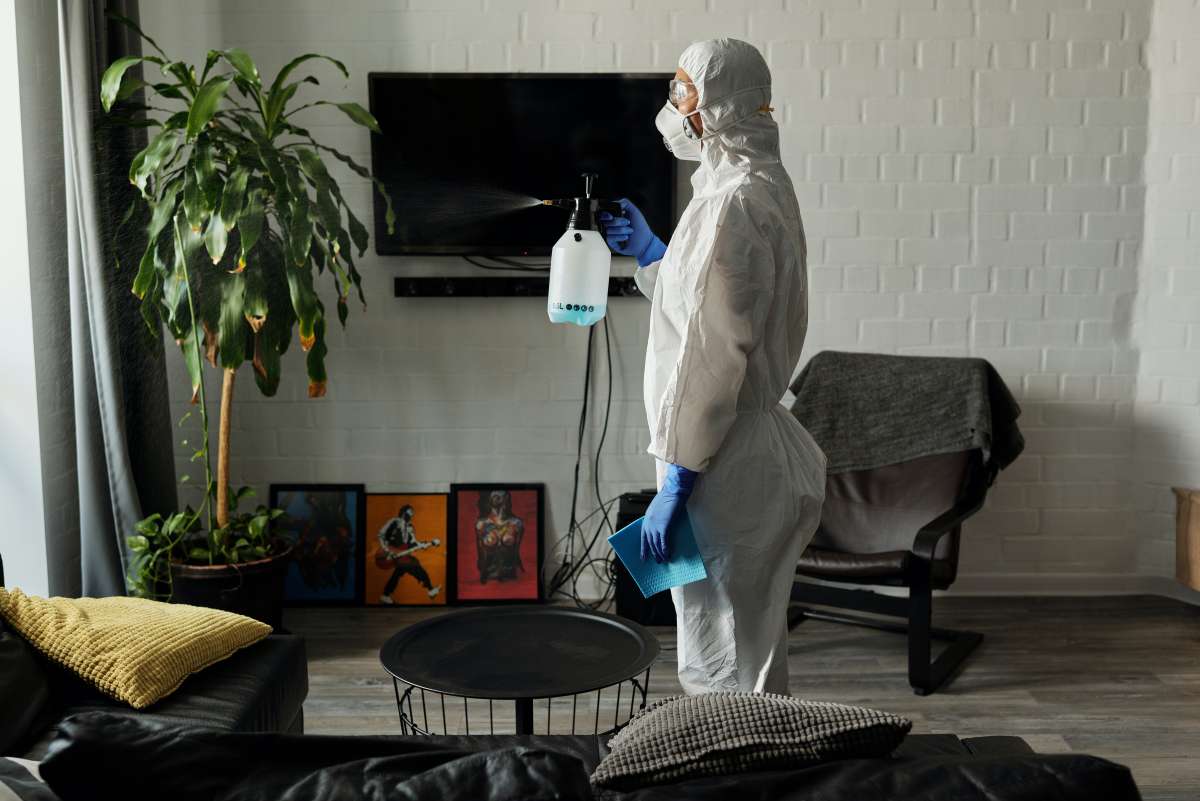
Several conditions qualify as "pest infestation," but only the most severe necessitate expert help.
The first thing to do if you have a pest problem in or around your home is to take stock of the species involved, their population density, and their geographical distribution.
Termites gnawing on your support beams necessitate professional pest control, but seasonal fruit flies in the kitchen might be manageable on your own.
If the pest problem persists, you should also consult a professional exterminator.
While many do-it-yourself (DIY) solutions may provide temporary relief, only a trained professional can effectively resolve the issue permanently.
Pest Control Services Are Thorough And Safe.
The services provided to eliminate pests are 1) effective and 2) risk-free. They guarantee there will be no signs of the pests left behind.
This is because a new infestation can start with the introduction of even a single pest. In addition, these services only employ non-toxic substances.
The Worth Of Money In Pest Control Services Is Unquestionable.
There is no doubt that hiring a pest control company is money well spent. They may be a touch costly, but you can rest assured that you will be satisfied with the results.
The absence of pests also means a reduction in maintenance costs, saving you money over time.
Pest Control Services Are Customisable.
Third, you can adjust the specifics of your pest control service to meet your needs. As a result, you can select the desired service and coverage area.
For instance, a one-time service may be all that's necessary for a modest home. However, if you have a sizable home or business, you have the option of selecting a monthly or quarterly service.
Pest Control Services Come With A Guarantee.
Finally, a guarantee is offered with pest control services.
This means that the company will send out workers to re-treat your property at no additional charge if the pests return within a specified time frame.
The use of expert pest control services is, thus, highly recommended.
Precautions to Take When Dealing with a Pest Problem
Pests are more than just an annoyance; they pose real health risks by bringing in pathogens and other potentially harmful organisms.
That is why it is so essential to take precautions in the first place to prevent unwanted guests from entering the home.
If you can't get rid of pests right away, the next best thing is to act quickly before they cause serious health problems or even structural damage to your home.
- To begin, you should try employing baits rather than pesticides that are sprayed over a broader region.
- Whenever it is possible, use insecticides that are already prepared for usage
- You should only use fogging pesticide equipment when it is completely required.
- Under no circumstances can insecticides intended for use outside be brought inside.
- Keeping insecticides in the containers, they were purchased to ensure that pesticides are stored securely and disposed of in an appropriate manner.
Conclusion
Homeowners frequently experience frustration due to the presence of unwanted pests. They can get inside your house through a variety of entry points, such as by squeezing through cracks and openings of the smallest size.
Although it may be necessary to hire a professional exterminator in the case of severe infestations, the typical household is capable of resolving many insect problems on its own.
You should trim back any tree branches or vegetation that is growing in a way that could potentially cause damage to your house.
You need to clean the area that is surrounding your house, and you also need to clean the drains that are located outside of your house.
The environments in your restrooms should be kept clean and dry at all times.
You should not put a container under an air conditioner that evaporates water in order to collect the water that it produces; instead, you should place the container somewhere else in your home.
It is important to conduct routine inspections of the exterior of your home to search for cracks, crevices, and other openings that could be used by pests to gain access to your property.
It is important to stay on top of your regular cleaning routine, which should include activities such as vacuuming, mopping, and other similar tasks, in order to prevent any unwanted pests from settling in. It is recommended, just as it is with garbage, to store recyclables in a container that has a lid that can be secured in a closed position.
In some areas, residents are provided with open containers in which to dispose of trash and recyclables.
The extermination services that are offered are highly efficient and completely risk-free. They warrant that there will be no traces of the unwanted critters remaining behind.
If you get rid of the pests, your maintenance bills will go down, which will end up saving you money in the long run.
Although employing the services of a pest control company might be a bit pricey, you will be pleased with the work they do.
Pests are more than just an annoyance; they can actually pose a threat to one's health because of the pathogens and other potentially harmful organisms that they bring into the home.
Therefore, it is strongly suggested that you make use of professional pest control services.
If you are unable to eradicate pests immediately, the next best thing is to take prompt action to prevent serious health issues or even damage to your home that may be caused by the pests.
Content Summary
- You don't have to wait until a pest has already invaded your home and caused damage to take defensive measures; rather, you can take proactive measures to avoid pest problems before they even arise. This will save you the trouble of waiting to take offensive measures.
- There are a lot of different things you can do, both inside and outside of your house, to reduce the likelihood that conditions will arise in which pests will be attracted to living there.
- Homeowners frequently experience frustration due to the presence of unwanted pests.
- There's no getting around the fact that problems with pest control can be a major pain in the neck.
- In addition to the damage they are capable of causing, they also present a risk to one's health.
- There are many things that homeowners can do to prevent insects from ever entering their homes in the first place.
- Although it may be necessary to hire a professional exterminator in the case of severe infestations, the typical household is capable of resolving many insect problems on its own.
- In the event that an infestation does take place, we will also provide information on how to treat it properly.
- Pests and rodents are more than just an annoyance; they have the potential to significantly harm not only your health but also the health of your family.
- It is essential to maintain a clean kitchen in order to reduce the risk of having insects, rodents, or other vermin move into the space. This includes the cabinets, cooktop, shelves, and countertops.
- In order to keep your home free of pest infestations in the near future, one more extremely important step that you need to take is to clean up after the pest control treatment.
- You should trim back any tree branches or vegetation that is growing in a way that could potentially cause damage to your house.
- The vast majority of resources devoted to preventing pests in apartments do not include advice on preventing pests in bathrooms. This is particularly true in apartment buildings with multiple bathrooms.
- The environments in your restrooms should be kept clean and dry at all times.
- It is recommended that you use a toilet bowl cleaner once every other day to clean the toilet bowl.
- The bathroom will retain its pristine appearance and be free of vermin for a considerable length of time as a result of taking these easy preventative measures.
- Pests like mosquitoes develop in stagnant water.
- You should clean the area around your home and make sure that the drains that run outside of your home are also cleaned because dirty water that is allowed to sit still in drains can be a breeding ground for mosquitoes, which can spread diseases such as dengue fever and malaria.
- You should clean the area around your home and make sure that the drains that run outside of your home are also cleaned.
- One could say the same thing about the utensils that are used in the kitchen.
- You should not put a container under an air conditioner that evaporates water in order to collect the water that it produces; instead, you should place the container somewhere else in your home.
- Alternately, you could clean the dish every day after emptying it.
- Check to see that neither your house nor any of the areas surrounding it have any pools of water standing in them. This should be a priority for you.
- It is important to conduct routine inspections of the exterior of your home in order to search for cracks, crevices, and other openings that could be used by pests to gain access to your property.
- Check the foundation for any cracks or problems as well.
- When fruits and vegetables have matured to their full potential, they become more appealing to flies and other kinds of insects.
- The vast majority of people are aware that having trash lying around the house has the potential to entice pests like ants, roaches, and mice into the house.
- On the other hand, unwanted insects and animals might be drawn to the debris in your yard because they can make use of it either as a place to nest or as a source of food.
- Be sure that the lids of all of your garbage cans are securely fastened, and clean the cans as well as the area around them on a regular basis to remove any debris or spills that may serve as a source of nourishment for insects.
- In addition to this, you should make sure that your lawn, terraces, balconies, and parking lots are free of dead leaves, plant clippings, and water that has been allowed to collect for an extended period of time.
- It's possible for all of these factors to come together to create conditions that are just right for noxious animals to make their homes there.
- It is recommended, just as it is with garbage, to store recyclables in a container that has a lid that can be secured in a closed position.
- If this describes your circumstances, you should give your recyclables a careful scrub in order to eliminate any traces of food before throwing them away in the garbage.
- If you do this and take a little bit of extra time to do it, you should be able to keep any pests from entering your bin.
- In addition, you shouldn't keep the bin inside your house or garage; instead, you should store it outside if at all possible.
- Eliminating clutter is an efficient method for lowering the number of bug populations in a home.
- You should get rid of old toys that your children have outgrown as well as any empty boxes that are lying around the house. These kinds of things just invite vermin into your home and provide a breeding ground for bacteria.
- You should get rid of or sell anything that you no longer require, such as an old baby stroller, shoes, packing, plastic bags, and outdated suitcases, for example.
- It is necessary to dispose of the item if there is no longer any use for it.
- If you keep your house clean, there will be fewer opportunities for pests to move in.
- It is important to stay on top of your regular cleaning routine, which should include activities such as vacuuming, mopping, and other similar tasks, in order to prevent any unwanted pests from settling in.
- In addition, if you clean your home on a consistent basis, you will likely find any entry points for pests before they become a problem.
- Even though taking the steps that have been mentioned can help reduce the number of insects in your home, doing so alone will not be enough to prevent the requirement of professional extermination.
- A "pest infestation" can refer to a number of different conditions, but only the most severe ones require professional assistance.
- Fruit flies in the kitchen during certain times of the year might be able to be controlled on your own, whereas termites that are gnawing on your support beams require the services of a professional pest control company.
- If the pest problem continues, you should also speak with an exterminator who is trained and experienced in the field.
- Employing a company that specialises in pest control is undeniably an excellent use of one's money.
- Third, you have the ability to tailor the particulars of your pest control service to fulfil your requirements.
- A one-time service, for instance, might be all that's required for a home that's on the more modest side.
- Nevertheless, if you have a sizable home or business, you have the choice between a monthly service and a quarterly service for your garbage collection.
- Last but not least, a warranty is included with the pest control services.
- This implies that the company will not charge you any additional money to re-treat your property if the pests come back within a certain amount of time after they have been eradicated from it.
- Therefore, it is strongly suggested that you make use of the assistance of professional pest control services.
- Because of this, it is absolutely necessary to take preventative measures right off the bat in order to stop uninvited visitors from entering the house.
- If you are unable to get rid of pests right away, the next best thing you can do is move quickly to prevent serious health issues or even structural damage to your home that could be caused by the pests.
- Use insecticides that are already mixed and ready for application whenever it is possible to do so.
- You should only fog pesticides with the appropriate equipment when it is absolutely necessary to do so.
- Insecticides will be contained within the containers, and their acquisition was motivated by the desire to guarantee that pesticides will be discarded in an appropriate manner after being safely stored.

